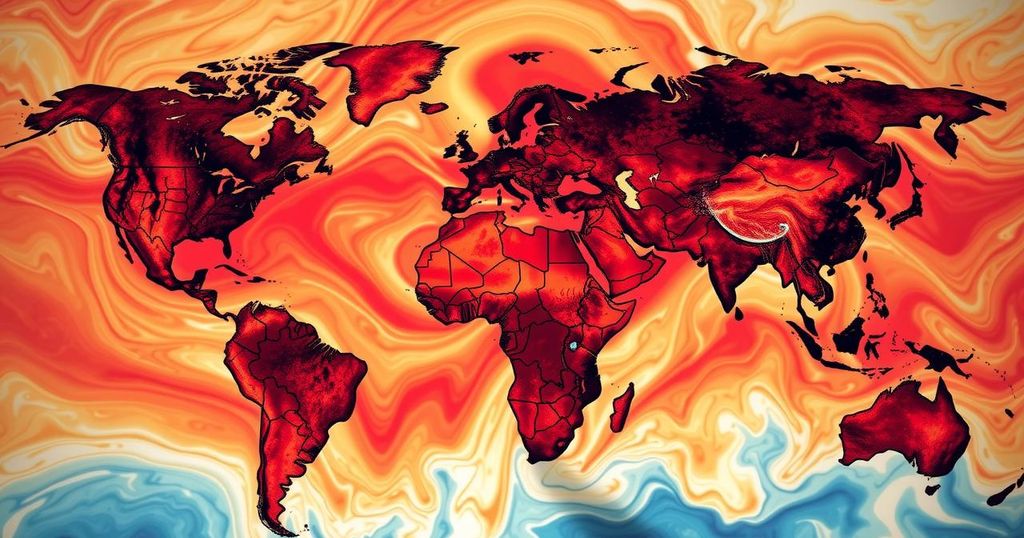Climate scientists announced that in 2024, global temperatures reached an alarming 1.6 degrees Celsius above preindustrial levels, making it the hottest year on record since 1850. This increase has intensified the frequency and severity of natural disasters worldwide. Experts attribute these temperature rises primarily to human activities, particularly carbon emissions from fossil fuels, amidst growing demands from energy consumption and technology.
In early 2025, climate scientists reported that global temperatures soared to unprecedented levels in 2024, marking it as the hottest year recorded since the beginnings of systematic observations in 1850. The new data from the EU’s Copernicus Climate Change Service reveals that global temperatures increased by 1.6 degrees Celsius (2.88 degrees Fahrenheit) above preindustrial levels, significantly surpassing the 1.5-degree threshold that global leaders pledged to avoid.
The Copernicus report indicated that the average global temperature for 2024 was registered at 15.10 degrees Celsius (59.18 degrees Fahrenheit), a drastic indication of climate crisis progression. Concurrently, regions around the world were grappling with catastrophic climate-related disasters, exemplified by recent wildfires in Los Angeles which resulted in severe property damage and loss of life. Samantha Burgess, a leading climate strategist at the European Centre for Medium-Range Weather Forecasts, attributed these climate pressures to the alarming temperature rise and the record levels of atmospheric water vapour which fostered extreme weather scenarios.
The report further emphasized that every year from 2015 to 2024 ranked among the ten warmest years on record. On July 22, 2024, a daily global temperature record was established, reaching 17.16 degrees Celsius (62.89 degrees Fahrenheit). Exceptions to this year’s extreme temperature increases were found in Antarctica and Australasia, which did not experience their warmest years. Scientific consensus identifies human activities, particularly emissions resulting from fossil fuel combustion, as the primary contributors to these climatic changes. The burgeoning energy demands from households and advanced AI technologies present additional challenges to addressing reliance on fossil fuels effectively.
Climate change is a pressing global issue, with rising temperatures posing significant threats to ecosystem resilience and human welfare. The goal of limiting global warming to 1.5 degrees Celsius above preindustrial levels has prompted urgent discussions among leaders and climate scientists. In recent years, extensive research has documented how human-induced activities, particularly through greenhouse gas emissions, are profoundly impacting global climate patterns. The realities presented in the 2024 data underscore the urgent need for immediate action in combating climate change and mitigating its escalating consequences.
The records set in 2024 highlight the severity of climate change and the urgency with which global leaders must respond to its threats. The rise of global temperatures beyond the anticipated thresholds is dire evidence of the escalating climate crisis that results in severe natural disasters and widespread human suffering. To avert further catastrophic consequences, it is critical for societies globally to reduce carbon emissions and transition towards sustainable energy practices. This year’s findings have underscored the importance of adhering to international commitments aimed at climate stabilization, lest we exacerbate the already dire impacts of climate change.
Original Source: www.cnet.com






